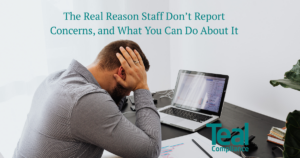The SRA expect solicitors and firms to continue to meet the high standards the public expect (which includes upholding the rule of law). It’s therefore important to ensure that all staff are aware of their obligations when onboarding clients, and this includes understanding what a politically exposed person is.
On a number of occasions, we’ve seen panic set in as soon as someone sees the words “match” for their client on a politically exposed person screening request, but there’s no need to panic! Just because someone is classified as a politically exposed person does not necessarily mean they are a “baddie”!
What is a politically exposed person and why are they considered high risk?
A politically exposed person is a person who is or, within the last year, has been a:
- Head of State/Government
- Minister
- Assistant Minister
- MP
- Member of judiciary
- Member of Courts
- Member of Auditors
- Member of boards
- Member of central banks
- Ambassador
- High-ranking officer in the armed forces
- Member of administrative management
- Member of supervisory bodies
- Member of state-owned enterprises Member of governing body of a political party
- Board of an international organisation (for e.g. FIFA)
In addition, a person will also be classified as a politically exposed person if they are:
- A member of a politically exposed person’s family
- A known close associate of a politically exposed person (whom the politically exposed person is in business with)
- A beneficial owner of the politically exposed person’s property (someone who enjoys the benefits of ownership even though the title of the property is in another person’s name)
Why is a politically exposed person deemed high risk?
A politically exposed person is deemed high risk because they generally present a higher risk for potential involvement in bribery and corruption due to their position and the influence that they may hold.
Therefore, the main aim of applying Enhanced Due Diligence (EDD) to work involving a politically exposed person is to mitigate the risk that the proceeds of bribery and corruption may be laundered.
A politically exposed person is also an easy target for identity theft due to a great deal of their personal information being publicly available.
How do you find out if your client is a politically exposed person?
The best way to check whether someone is a politically exposed person is through politically exposed person screening solutions (PEP screenings) online. Many firms already have electronic verification which will normally include PEP screening as part of the checks that are carried out. Some online screening solutions will also provide additional information, such as adverse media and any criminal conduct – a good way to check whether your politically exposed person is a “baddie” or not!
Don’t forget Google, it is amazing what information you might find from a Google search.
The Regulations
Regulation 33 (1)(d) of the Money Laundering, Terrorist Financing and Transfer of Funds (Information on the Payer) Regulations 2017 (MLR 2017) states that EDD is required in situations where the client is a politically exposed person, or a family member or known close associate of a politically exposed person. Therefore, it is important to establish whether or not your client is a politically exposed person at the outset.
In addition, under Regulation 35 of the MLR 2017, if your client is a politically exposed person you must:
- Get senior management approval for the business relationship
- Take adequate measures to establish the source of wealth and source of funds
- Closely monitor the business relationship throughout
Get in touch
If you need any assistance when dealing with a politically exposed person, please get in touch and we would be happy to help.
Take a look at the compliance services we can offer or alternatively, get in touch with one of our experts.




